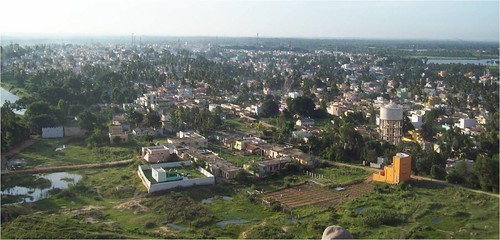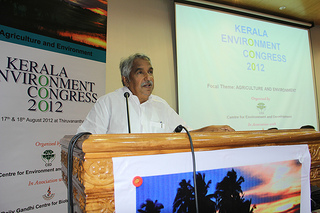/topics/groundwater
Groundwater
Impact of pit-toilet leachate on groundwater chemistry and role of vadose zone in removal of nitrate and E. coli pollutants in Kolar District, Karnataka, India
Posted on 04 Jan, 2013 02:00 PMGiven the many problems associated with flush toilets and the sewerage system, pit toilets offer a viable solution in India. However, the use of soakpits raises the question of groundwater contamination. This paper assesses the impact of pit toilet leachate on groundwater quality in Mulbagal town (pop ~ 60,000) in Karnataka relies on pit toilets, and uses groundwater for drinking.
District-wise data on groundwater resources and its utilization in Andhra Pradesh for the year 2004-05 - A compilation by the Andhra Pradesh State Groundwater Department and the Central Groundwater Board
Posted on 31 Dec, 2012 12:00 AMThe data is categorised into watershed wise (basin-wise) annual availability of groundwater, current draft (utilisation), allocation for domestic and industrial needs, availability for future use (or the balance) and categorisation based on stage of development and rigorous statistical treatment of water levels.
Don't cut my oak trees: A film on afforestation in Uttarakhand by the Himalaya Seva Sangh
Posted on 30 Dec, 2012 07:40 PMA growing concern - How soon will India run out of water - Paper published in the Journal of Global Health
Posted on 29 Dec, 2012 05:33 PMThe paper informs that groundwater accounts for about 50%-80% of domestic water use and 45%-50% of the irrigation in the country.
Briefing papers on ‘Jal kothis’, ‘Matka filter’, 'Dug wells' and ‘Phayedemand shauchalaya’: Local innovative solutions in flood prone Bihar by Megh Pyne Abhiyan (2011)
Posted on 29 Dec, 2012 03:14 PMThe briefing papers include the following:

Exploring linkages between the agricultural sector and the environment - Report on the Kerala Environment Congress organised by the Centre for Environment and Development at Thiruvananthapuram, between 16 -18 August 2012
Posted on 24 Dec, 2012 05:27 PMThe Congress was jointly organised by Centre for Environment and Development (CED), Thiruvananthapuram and the Rajiv Gandhi Centre for Biotechnology (RGCB), Thiruvananthapuram
Inauguration of the conference
Around 350 participants including eminent scientists, agricultural experts and students participated in the event. The conference was inaugurated by the Chief Minister of Kerala, Sri. Oommen Chandy. Speaking on the occasion, the Chief Minister, highlighted that development and environment were linked and that the approach to the cause of agriculture and environment needed to be realistic since the state could not neglect both development and environment. He also pointed out that Kerala was one state having a very high reputation in preserving and protecting the forest cover, which was much higher than the national average in the state. This was possible due to the will and awareness of the people of Kerala. He emphasised the need for a more realistic approach to deal with issues related to the agriculture and environment.

Inaugural speech by the Chief Minister of Kerala
Solid and liquid waste management - Proceedings of the Kerala Environment Congress organised at Thiruvananthapuram, 24th to 26th June 2010
Posted on 24 Dec, 2012 04:06 PMThis document published by the Centre for Environment and Development (CED) includes the proceedings of the Kerala Environment Congress 2010 jointly organised by the Centre for Environment and Development (CED), Thiruvanathapuram, Kerala, sponsored by the Ministry of Environment and Fo






